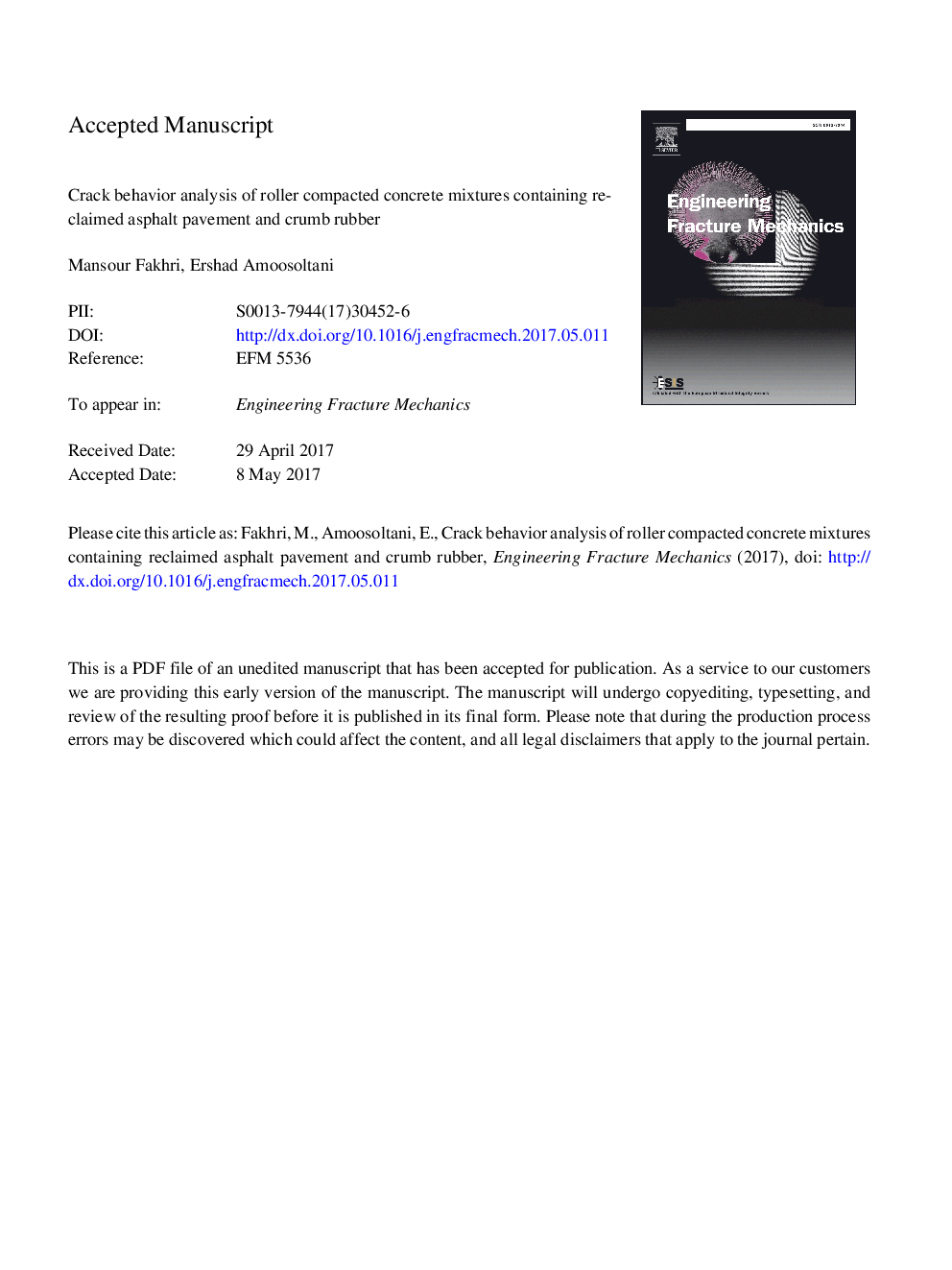| Article ID | Journal | Published Year | Pages | File Type |
|---|---|---|---|---|
| 5013840 | Engineering Fracture Mechanics | 2017 | 23 Pages |
Abstract
Tensile cracking is one of the main modes of deterioration and failure in rigid pavements. Hence, in this paper the effects of roller compacted concrete (RCC) characteristics on their fracture behavior in both pure mode I and II are experimentally investigated. A set of 288 edge cracked semi-circular bending (SCB) specimens were subjected to an asymmetric three-point bending test. Similarly, beam specimens endured four-point bending (4PB) test and were tested for different concrete mixtures made with waste materials such as reclaimed asphalt pavement (RAP) and crumb rubber. The influence of aggregate gradation, cement content, RAP, and rubber content on the critical stress intensity factors in pure fracture mode I and II were studied. The fracture toughness results revealed concrete mix specifications had a noticeable impact on the cracking initiation of RCC and the effect of substituting of waste materials with natural aggregates was found to be negative, although their behavior was still comparable to those obtained for control mixes. It was also found that there is a good consistency between observed results and the maximum tangential stress (MTS) fracture criterion.
Related Topics
Physical Sciences and Engineering
Engineering
Mechanical Engineering
Authors
Mansour Fakhri, Ershad Amoosoltani, M.R.M. Aliha,
